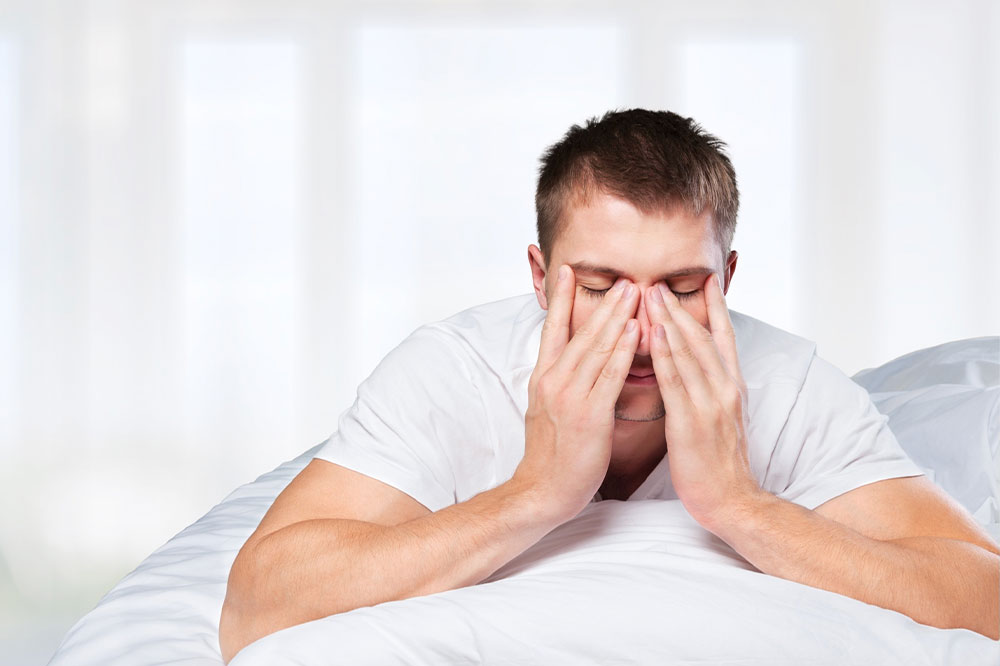4 sleep disorders to watch out for
According to the Scientific Reports Journal, sleep disorders are experienced by approximately 56 percent of the world’s population at least once in their lives. So, what are these conditions, and do they have any signs and symptoms? Do they cause a more significant impact on your overall health? How can you prevent them? This article discusses all these questions to help you know more on sleep disorders, in general, and certain types of the condition.

What are sleep disorders?
Sleep is a basic human necessity that allows the body to function optimally. Most adults need around seven to nine hours of uninterrupted sleep each night. These disorders, also known as sleep-wake disorders, are conditions that impact the quality and amount of your sleep. Lack of sleep is also linked to other chronic health conditions such as cardiac problems, diabetes, and hypertension.
Common sleep disorders and their symptoms
Insomnia
Insomnia is a sleep disorder that interferes with a person’s ability to fall or stay asleep. There are two types of insomnia. These include short-term and chronic insomnia. While the first one lasts only for a few days, chronic insomnia lasts for a longer time. It occurs at least thrice a week and lasts for three months or longer. A study shows that almost 50-70 million Americans suffer from this condition. It is often a result of s tress and anxiety, e xercising or eating just before sleeping, l ong-term dependence on prescriptions, c onditions such as heart problems, asthma, overactive thyroid, Parkinson’s, etc, and e xcessive consumption of caffeine.
Here are some signs of insomnia that you should be aware of:
Inability to fall asleep
Disturbed sleep
Daytime fatigue and tiredness
Irritability
Lack of focus
If insomnia doesn’t resolve on its own and starts interfering with your life, your doctor may advise relaxation techniques or cognitive behavioral therapy. In severe cases, you may be recommended prescription options.
Restless Leg Syndrome
Also known as Willis-Ekbom disease, restless leg syndrome is a neurological disorder that impacts the ability of a person to enjoy good quality sleep. It is one of those sleep disorders that may trigger other sleeping conditions such as insomnia. While the causes of RLS have not been identified, it is mostly attributed to genetics, stress and anxiety, low levels of iron, allergies, nausea, and conditions such as kidney failure and diabetes
Here are some tell-tale signs of this condition:
A strong urge to move while sleeping.
Twitching or throbbing in the legs.
A sensation of electric currents passing through the skin.
Doctors usually recommend home remedies such as reducing caffeine, maintaining a regular bedtime routine, and exercising daily. You may also be advised dopamine-inducing treatments, sleeping aids, and muscle relaxants.
Sleep apnea
It is estimated that over 1 billion people suffer from this sleep problem. Since it causes a person’s breathing to stop during sleeping before it resumes normally suddenly, sleep apnea is a potentially-fatal sleep disorder. Here are some risk factors for sleep apnea: gender, nasal obstruction, enlarged tonsils, heart failure, kidney or lung conditions, or neurological conditions.
The symptoms of sleep apnea include:
Snoring
Disturbed sleep
Suddenly waking up with a choke or gasp
Cognitive impairment
Mood imbalances
In milder cases of this sleep disorder , your doctor may advise a conservative line of treatment. This may include losing body mass, reducing stress, and changing your sleep position. In case of severe cases, you may be advised PAP therapy using CPAP or BiPAP machines to reduce airway pressure.
Narcolepsy
This sleep disorder is caused by a neurological disorder instead of environmental triggers. People with this condition experience severe daytime sleepiness and may fall asleep anytime during the day, often known as sleep attacks.
According to the Journal of Clinical Neurophysiology, around 1 in 1000 people have experienced at least one bout of narcolepsy in their lives.
Here are some common causes of narcolepsy: loss of neurotransmitters in the brain, family history, autoimmune disorders, head injury, environmental toxins, and infections.
Here are some signs of this sleep disorder that you should be aware of:
Sleep paralysis
Hallucinations
Excessive daytime sleepiness
Moodiness
Lack of concentration and focus
Sudden loss of muscle strength
There is no existing cure for narcolepsy. Doctors usually advise lifestyle changes for milder cases. These include following a fixed sleep schedule and avoiding exercising just before bed. These are aimed at improving daytime productivity and alertness. In case these don’t work, you may be recommended stimulants.
People usually don’t think much of their sleep unless they stop getting enough of it, and it starts affecting their lives. With knowledge of these common sleep disorders and their symptoms, you can start bringing your sleep schedule on track. This will not just help you enjoy a productive life but also prevent many chronic health conditions.

